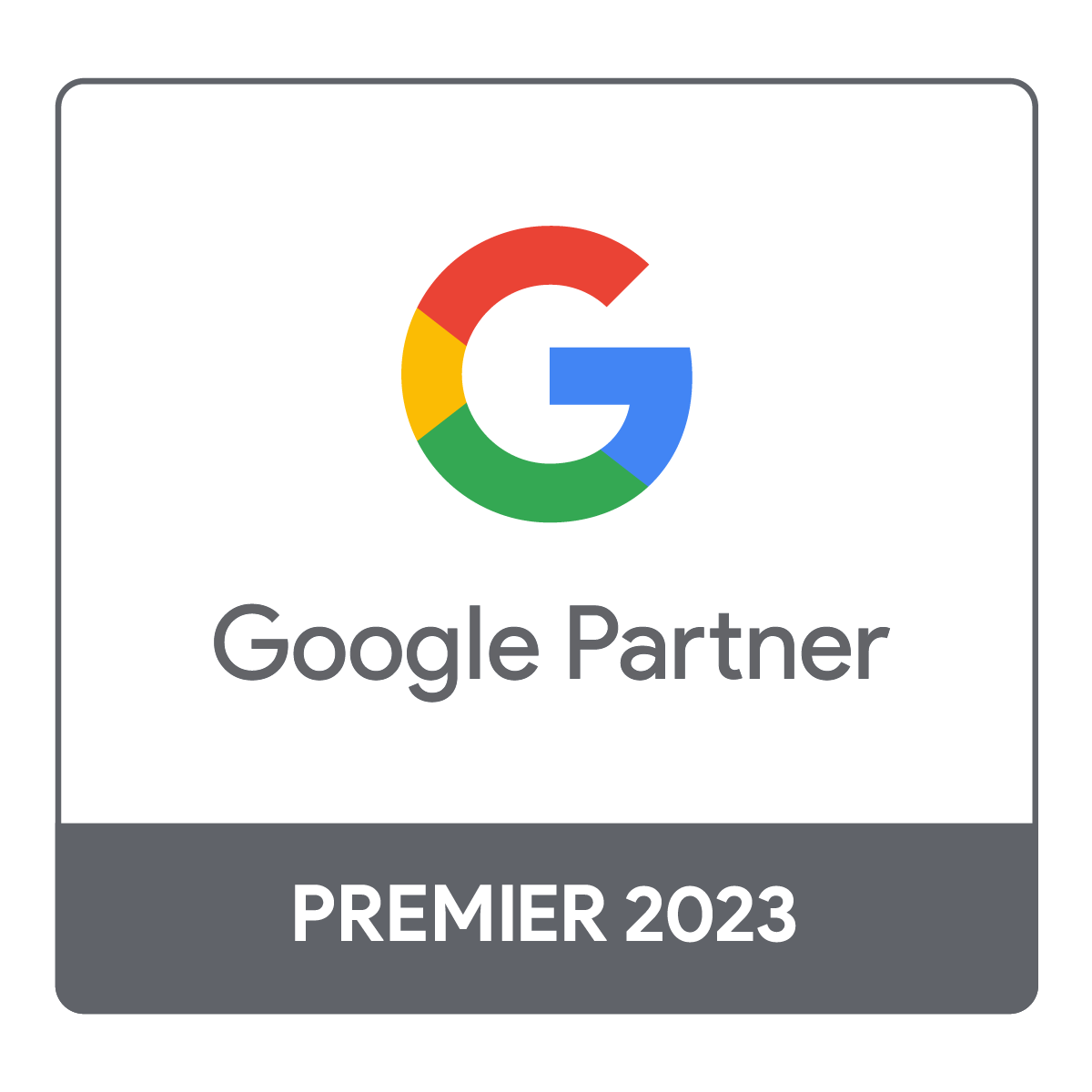Have you ever found yourself scrolling through search engine results, swiftly passing over a dull meta description in favor of one that catches your eye and entices you to click?
The same principle applies to your own website – an irresistible meta description is key to improve search engine rankings and ultimately driving more traffic to your site.
But how do you go about it when you write meta descriptions? Here is a summary:
- Firstly, make sure it accurately reflects the content on the corresponding page – no click-bait allowed!
- Secondly, incorporate keywords that potential visitors might use when searching for your product or service.
- Finally, don’t be afraid to inject some personality and creativity into your meta description – set yourself apart from the sea of generic blurbs out there and make readers eager to learn more about what you have to offer.
Just a reminder, this is part 2 of our series on page titles and meta descriptions. These are the two key components of SERP content that you have control over. If you want to learn more about page titles, please read part 1.
We have more tips to help you make a better-than-good meta description. So read on, give those meta descriptions a makeover and watch those search results soar.
Table of contents
Before we get started with meta descriptions, here’s a quick recap of what they are and where they appear.
The SERP is a list of top results given to you by your search engine based on your search query. The page title is the header tag (usually in blue), and the meta description appears as a sentence or two below it.
SEO page title tips: 7 tips for writing compelling meta descriptions
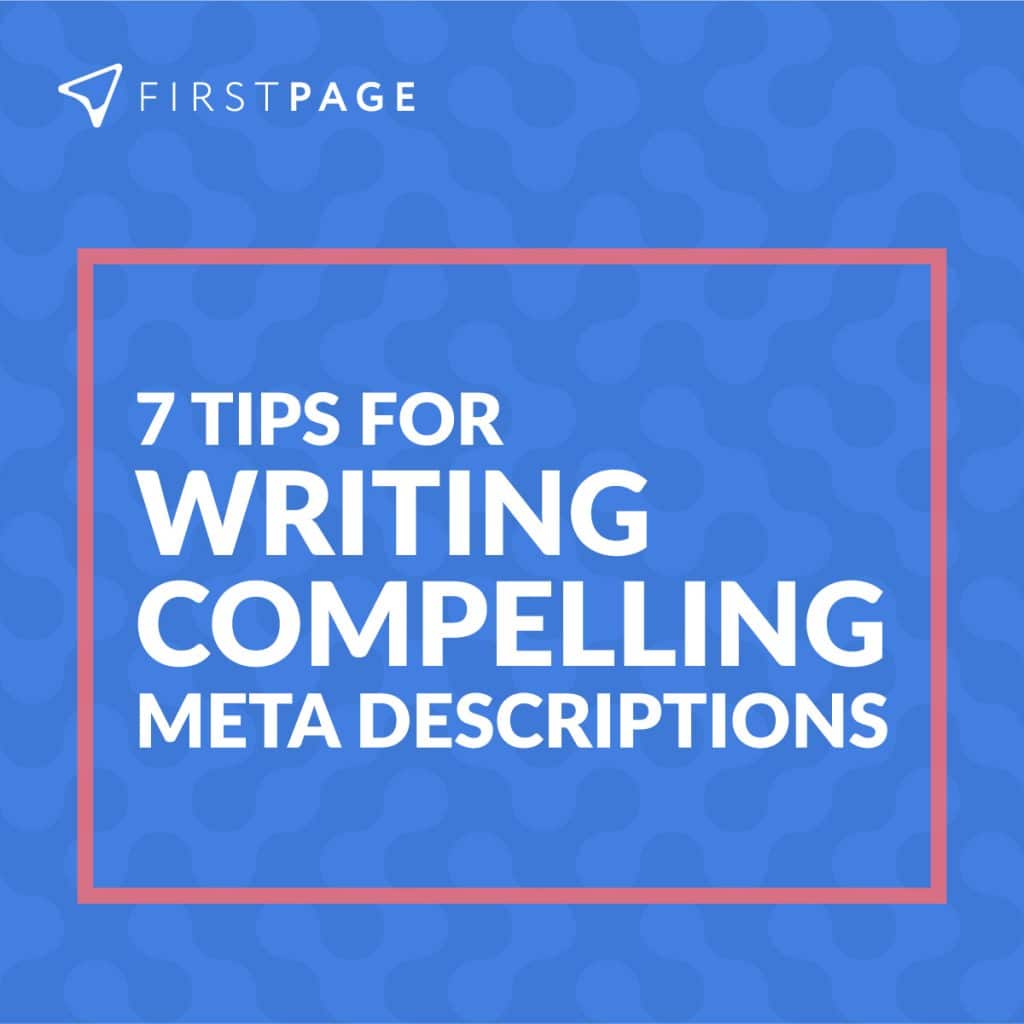
Meta descriptions are like a miniature blurb of a book.
They will always be read after the page title, and should therefore complement them. Why is are meta descriptions important?
Simply put, a great meta description provides a further glimpse into what the page offers and again encourages the reader to click on the page.
Chances are they’re reading your meta description because your title was convincing… but not convincing enough to warrant a click straight away.
What this means is that meta descriptions are absolutely vital to snag every last visitor you can from the SERP. In fact, pages with meta descriptions are reported to have a 5.8% higher CTR than those without – so pay attention to the next few tips.
1. Watch the meta description length
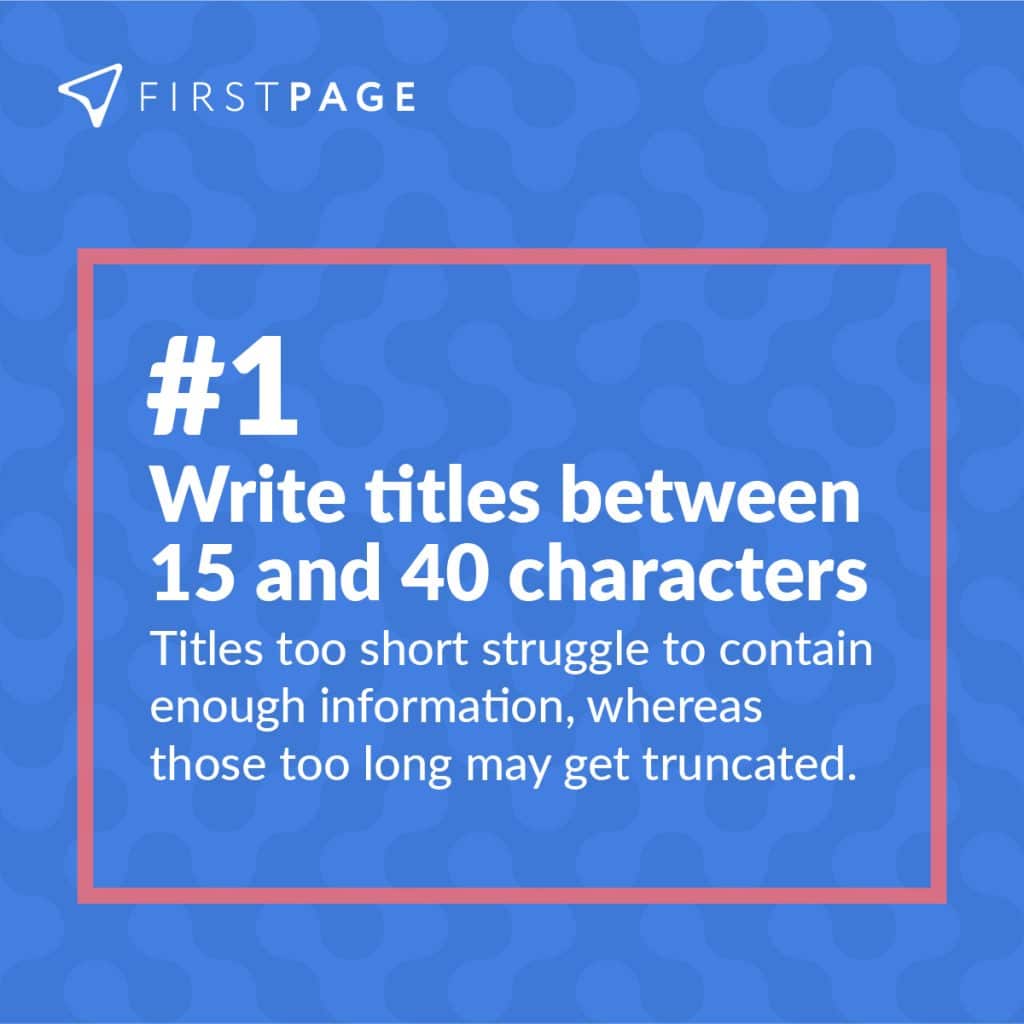
Similar to page titles, meta descriptions are very limited in terms of length.
However, you’ve got a bit longer to work here with roughly 156 characters being the upper limit for length.
We suggest not going over this, or you risk having a truncated description – which is bad for CTR.
Equally, having a meta description that is too short probably means you haven’t fully described your page or written a very persuasive description.
Striking the perfect balance will set you up for success.
2. ALWAYS use the active voice
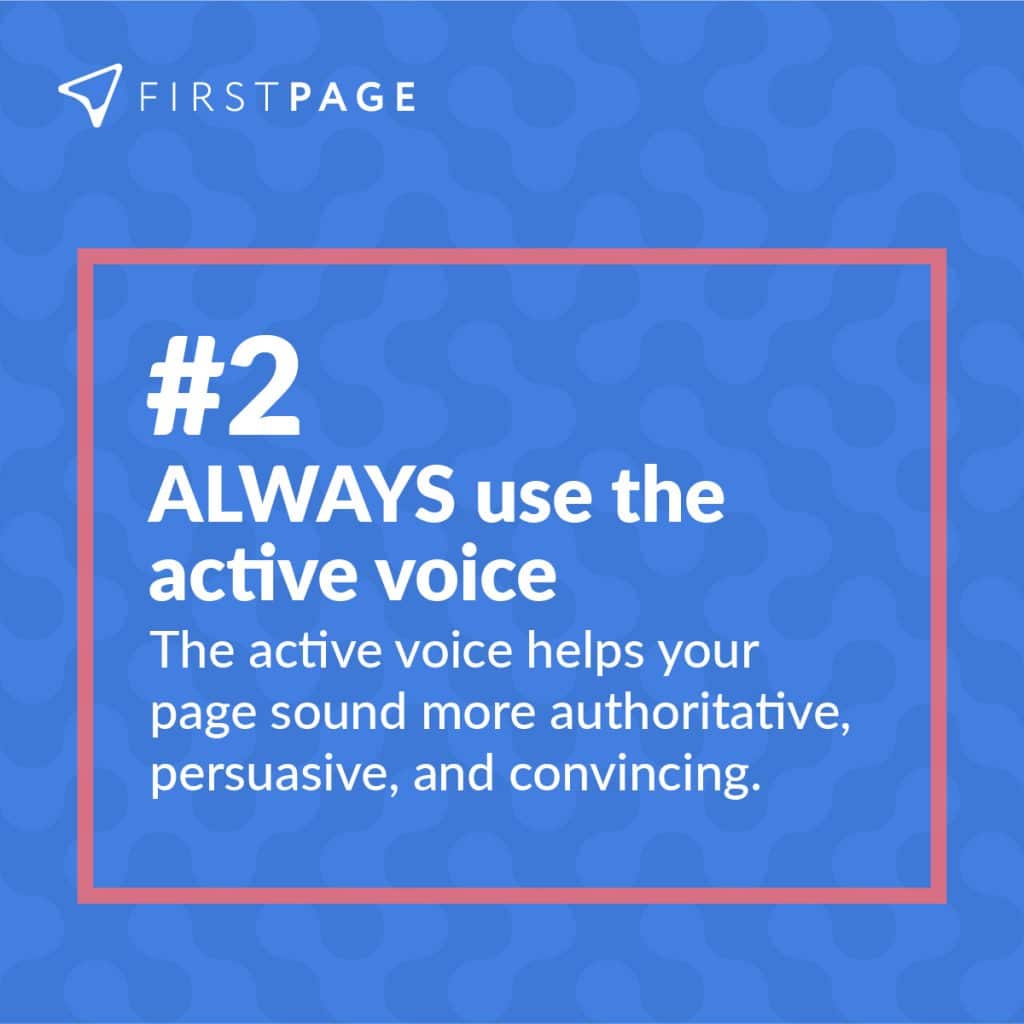
After page titles, meta descriptions are the next part of your page that searchers will interact with.
Writing in the active voice and in an engaging tone is one of the easiest ways to boost the performance of your meta description and take it to the next level. It doesn’t require you to change any of the details or content – just how it’s written.
Here are some meta description examples, say:
“Help your website find the traffic it deserves by learning how to write irresistible page titles and meta descriptions. Read more to find out how.”
Rather than:
“Learning how to write irresistible page titles and meta descriptions can help your website find the traffic it deserves. Read more to find out why.”
3. Include keywords in the meta description tag
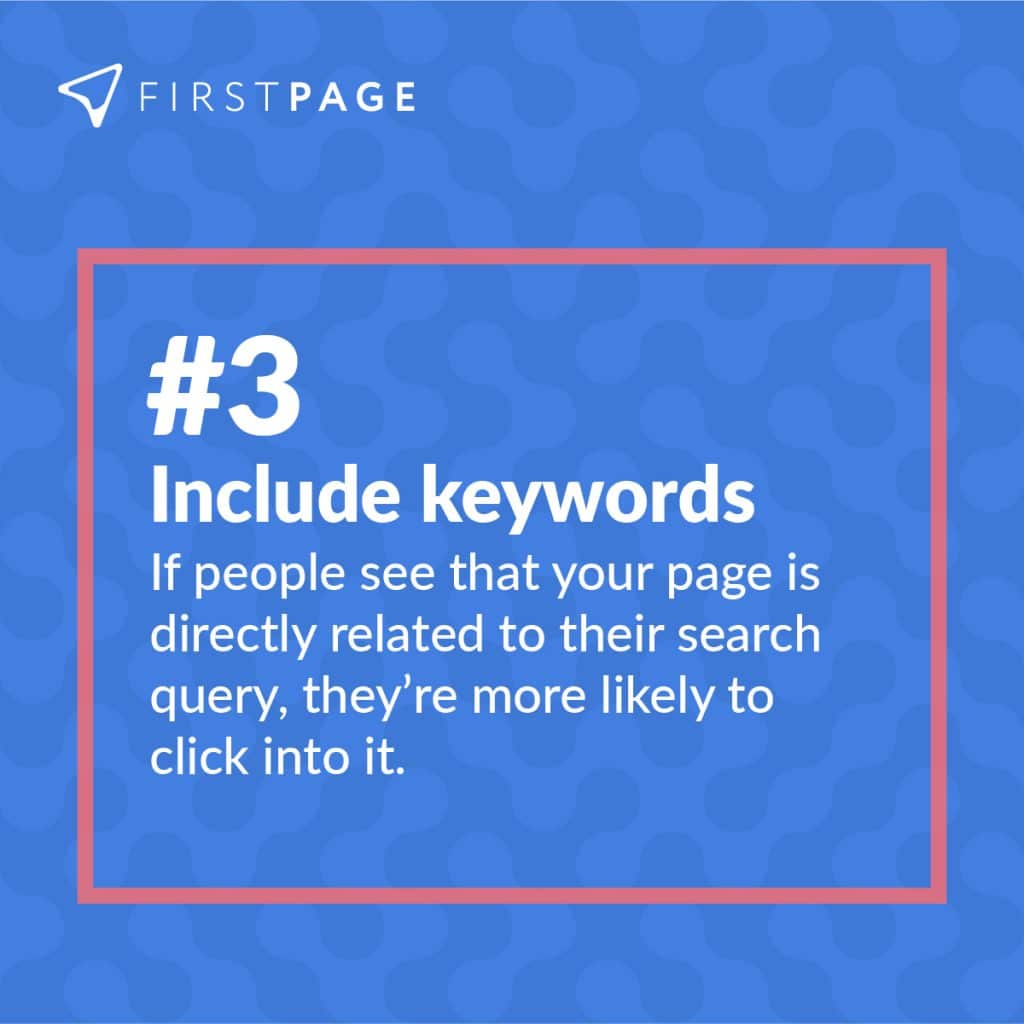
Similar to page titles, including keywords in your meta description can boost your SEO efforts while also appealing to the searcher.
If search engines accurately understand the contents of your page (through keyword usage), they can present it to searchers who would more likely be interested in it.
Similarly, if a searcher sees a relevant keyword in your meta description, they have a much higher chance of thinking the content will be helpful.
As a reminder, do not duplicate meta descriptions across pages! Each should be a unique meta description for each web page.
4. Use statistics & figures
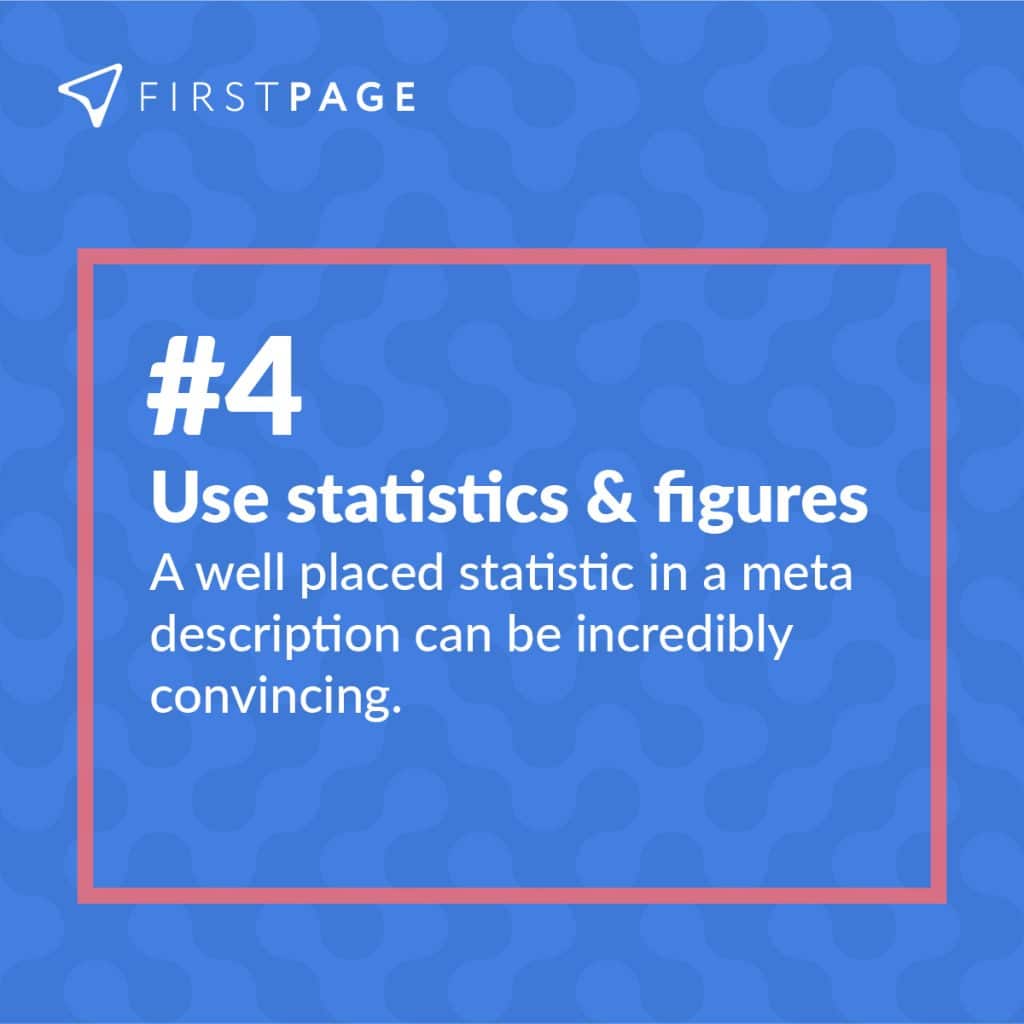
You have a little more room to work within meta descriptions. Think about including a key statistic or figure.
Saying that your product drives a 102% return on investment can catch the attention of searchers. Moreover, this can make your page sound more authoritative.
If done tastefully and appropriately, a key statistic in the meta description can set your page apart from the rest and drive a higher CTR.
5. Keep it unique & matched to the content of the page
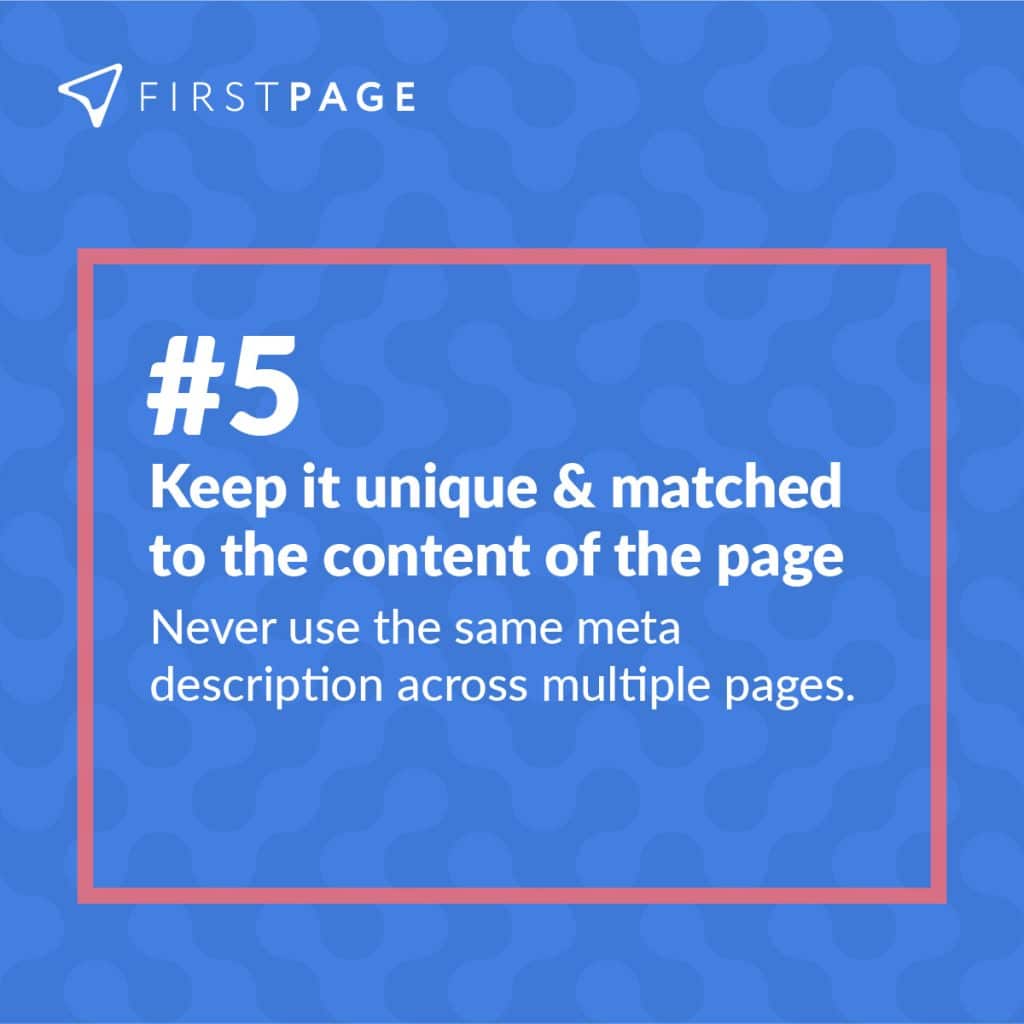
Each unique page should have its own unique meta description. If they don’t, search engine crawlers may skip over it and the page itself.
As a general rule of thumb – if your meta description could apply to another page with different content, it probably isn’t descriptive enough. Try to adjust it so that it reveals more in detail what the page offers readers.
6. Keep it specific but also encourage curiosity
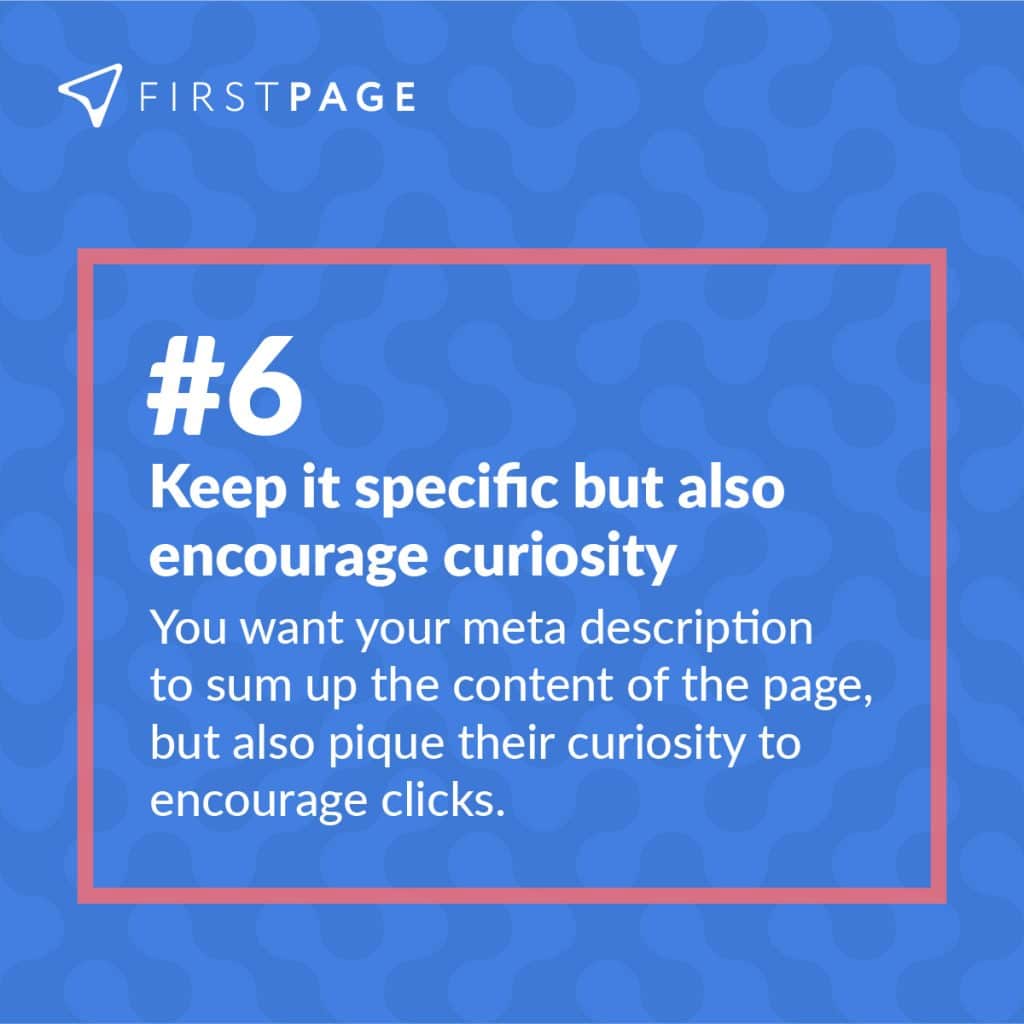
We’ve already discussed the limitations of a short word count – but remember to strike a balance between specificity and encouraging curiosity.
A meta description that is too broad or general could lose the interest of the reader, and have them skipping onto the next result.
On the other hand, a meta description that is so specific that it answers a users query may have them either leave the SERP altogether, or potentially dismiss your page as one lacking detail – since you managed to answer their query in 156 characters or less.
Keep your reader engaged by speaking directly to them. This will make for a compelling meta description and one that Google Search will love.
Tell them what your page offers them if they read it.
7. Include a call to action
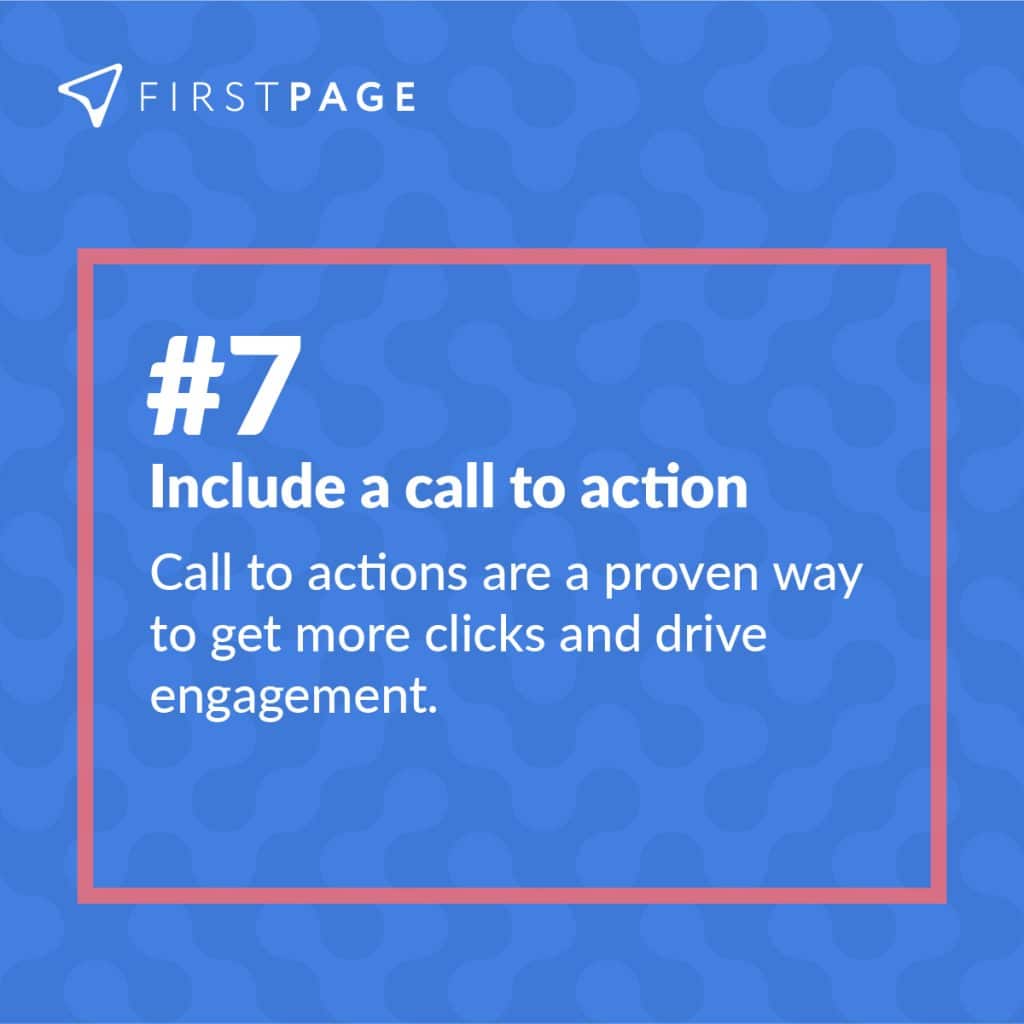
A great way to engage readers and drive curiosity is to include a call to action in your meta description. Usually at the end, they encourage the reader to click on your page. Popular CTAs include:
- Read more
- Find out more
- Learn more
- Sign up
- Book now
- Get started
- Join us
- … and so on.&
Often, CTAs are simply irresistible and we can’t help but click on them – even if we’re aware that they are CTAs. Humans have a primal instinct that drives curiosity, and CTAs are simply playing upon that.
Writing a good meta description: In Closing
Writing a proper page title and meta description is a vital part of boosting your search engine results and making sure you web page SEO performance and the user experience are at their best.
When it comes to SEO, a lot of the focus is on keywords and backlink building. But let’s not forget about the humble meta description – after all, it’s your chance to show off what your website or blog post has to offer.
Including relevant keywords in your meta description can improve your search engine rankings and increase website traffic.
Plus, when users see an enticing and informative description in their search results, they’re more likely to click through to your site. So don’t underestimate the power of a great meta description – it may just be the key to upping your search engine game.
Follow these tips for great results from your meta descriptions. It’s vital to make a positive first impression to avoid losing traffic to other sites – many of which may not even have as good content as you.
If you need help, please call us for a consultation. It is obligation free.
What else can you do to improve your digital marketing apart from writing awesome meta descriptions?
As you are well aware, keeping ahead of the competition requires constant investment. Having great metas will improve your on page SEO and search result for each web page on your web site (and drive web traffic). What more can you do to improve your marketing ROI? We have some great marketing blogs that can guide you to marketing success:
- Perfect Your Email Marketing Strategy Now
- What Are The Top Ppc Ideas You Ought To Know?
- Social Media Strategies: Successful Ones You Can Learn From
- Helpful Content Tips: Get Noticed Before The Competition
- 6 Easy Digital Marketing Hacks To Increase Your Leads
If you are a busy small business owner or entrepreneur, you probably have a lot on your plate. If this is the case, we encourage you to review some of our strategic marketing services to drive more sales and keep you ahead of the competition:
- SEO for your business to drive qualified leads
- Social media management for improved brand awareness
- Linkbuilding to drive organic traffic to your website
- Top converting landing pages to convert your leads
- Email marketing campaigns to bring in referrals

